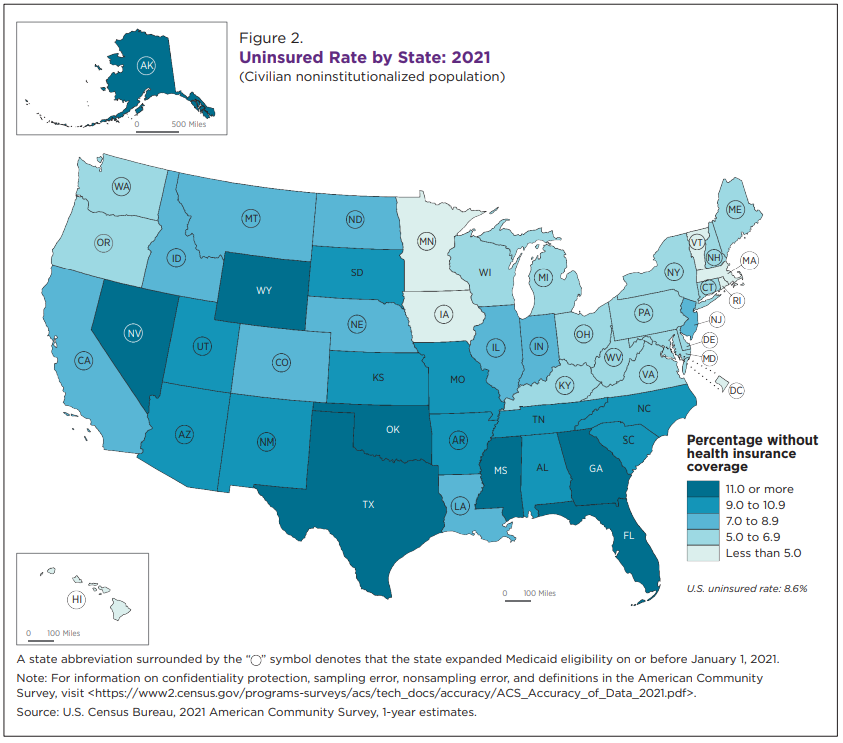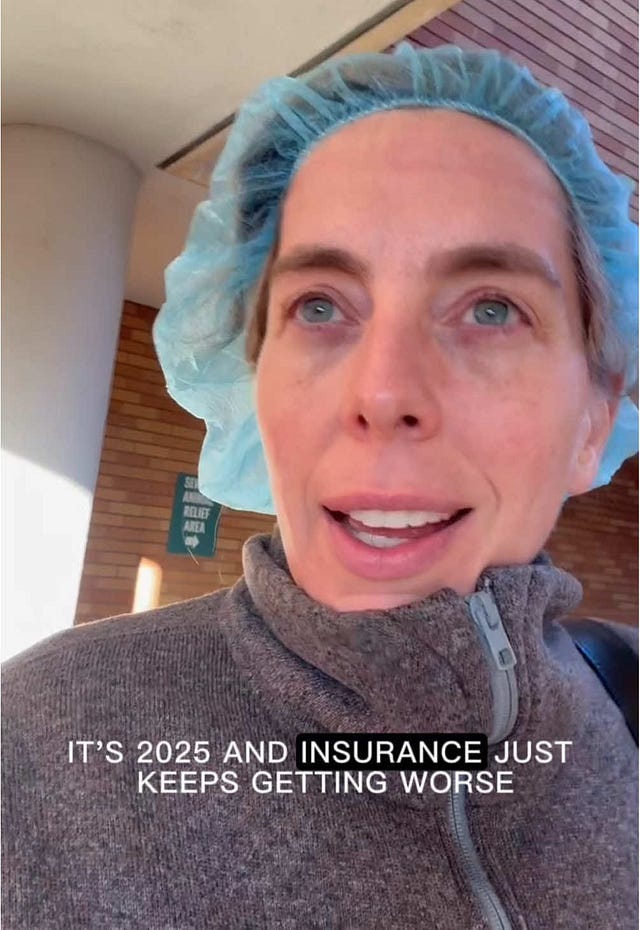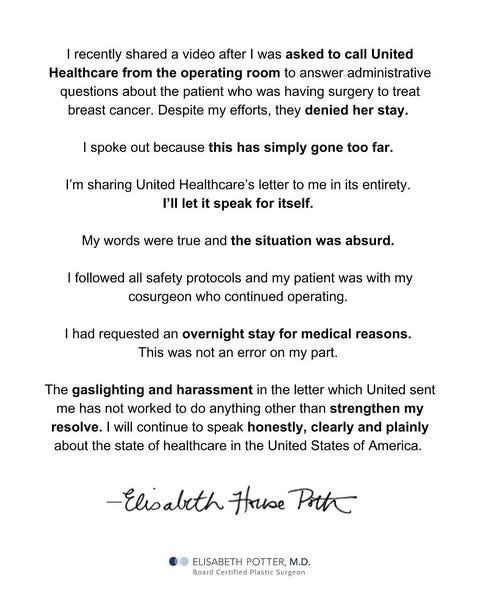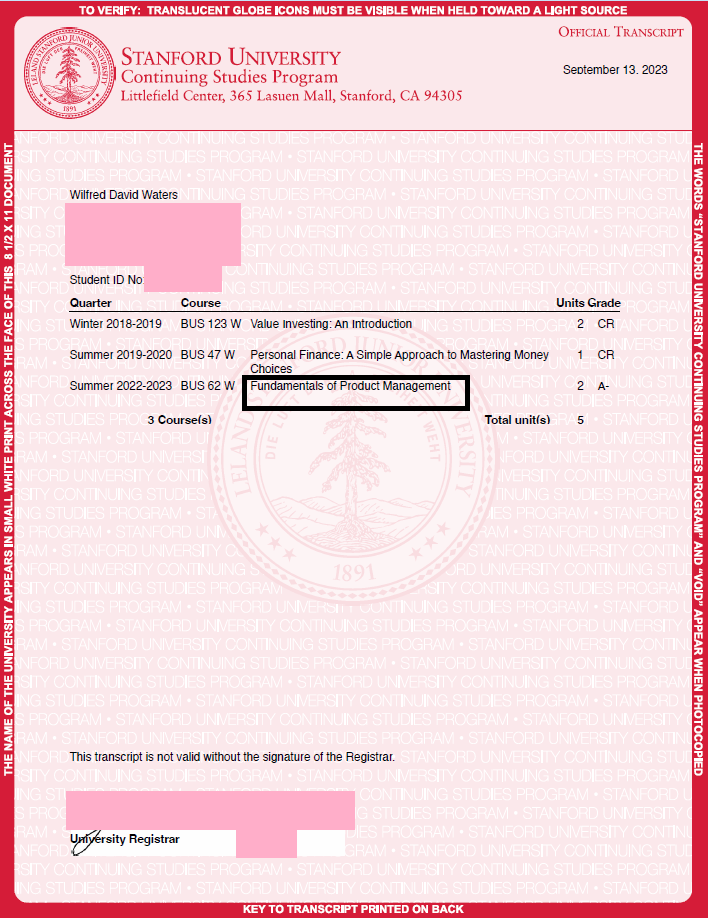Introduction

I am issuing an open call for interviews with the public about unfairly denied health insurance claims. Purpose: to discover if an app is needed to easily, successfully challenge them. To participate, just reply to this email, comment below or hit up wilfred DOT waters AT gmail DOT com. Comments on motivation, legitimacy, approach and background follow.
Why?
I have a GISP. According to Item 4 of the Rules of Conduct, Section 1, I have a responsibility to:
…hold paramount the safety, health, and welfare of the public.
I don’t see why I restrict my purview to geospatial conduct. Also, geography is a lens on health insurance coverage:

As discussed in the epilogue to the episode with Development Seed, a 26 year old software developer shot dead the CEO of United Healthcare 3 months ago. I and all of us are very sorry this resulted in, amongst other things, 2 fatherless children. The error of this act is compounded by the fact the killer was a software developer. Here was a young man with the coding skills to change an industry but he wrongly chose to use violence instead. Now the software development industry must respond with thoughtful, deliberate leadership. It appears that we must produce software that millions of Americans need to make it very easy to successfully challenge unfairly denied health insurance claims. The solution must scale to the population level. It must pass the grandma usability test.
Is This Effort Legitimate?
I am a Stanford trained product manager. I have a framework to deploy that distils the Silicon Valley approach to software entrepreneurship. The risk of succeeding is therefore high. The opening words out of course instructor Kunal Punjabi’s mouth were that most software start ups fail. A key problem is failure to identify a top customer need. How do we ensure we are working backward from customer needs?
100 customer interviews.
I am at 200 followers. 43% of you are American. I have the time to talk with all 86 of you. If a quarter of you find 1 more each, then we’ll easily cover the requirement of 100 customer need profiles. Here is the experience of a doctor last month showing this is important work and you will make the world a better place:

 Tiktok failed to load.
Tiktok failed to load.Enable 3rd party cookies or use another browser
She goes on to say on Instagram that she in fact did intend to request inpatient care after the surgery for her patient. This is despite the health insurer’s claims to the contrary:
A shocking circumstance that an industry should overwhelm the Hippocratic oath.
Approach
On the approach I will take -
Your confidentiality will be protected. Names and personally identifiable information do not matter to me and will not be recorded, stored or distributed. This is about strong customer needs across an aggregate of 100 people. Information will only be stored, processed, analyzed, interpreted and reported in an aggregated form.
I am a graduate of Fundamentals of Product Management at Stanford Continuing Studies, I achieved an A-:
Hence I am applying a framework that ensures thoughtful, deliberate action in qualifying customer needs, then an agile approach to software solutions.
In the framework, we are at the stage of ethnographic studies. In the words of my instructor, these are “to discover their problems, motivations, current patterns and the solutions they rely on to solve the given problem.” More on the interview approach:
Background
On my background -
Along with an M App Sci (GIS), I have a B Psych (Hons). It is important to say that I am not a qualified clinician. You are encouraged to make use of one if you need it - many of you can access this for free through your workplace EAP.
I am a former Lifeline counsellor in Australia. This is a suicide helpline. I completed the required training then volunteered in 2007. Anyone with signs of suicidal ideation will be referred to 988 Suicide and Crisis Lifeline because I am not a trained counsellor in the USA. Languages: English, Spanish. Hours: Available 24 hours.
I will use my background to be an effective listener. You may also consider the episodes from my two podcasts to judge evidence of this:
The Behavioral Investor:
The Geospatial Index:
Conclusion
As my product management instructor said, we fail when an urgent, widely held customer need is not identified. I therefore seek to interview 100 members of the public about struggling to challenge unfairly denied health insurance claims. If, whilst protecting privacy, such a need is identified, we will iterate from there.





